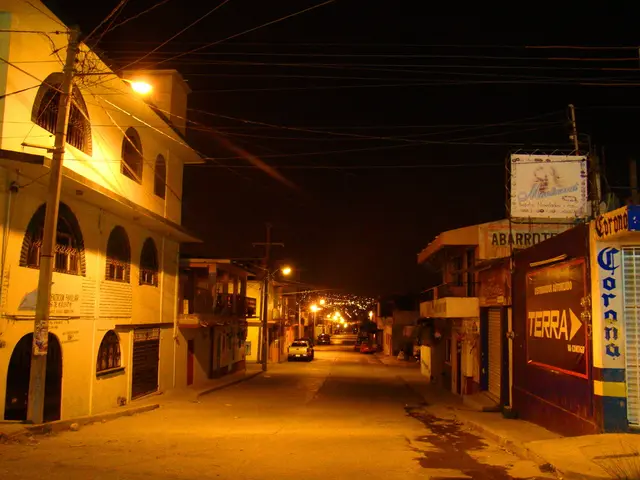Diverse crowds rally in Italy, demonstrating against the conservative administration of Giorgia Meloni
Thousands Demonstrate in Rome Against Meloni's Controversial Security Measures
On the sweltering streets of Rome, thousands of protesters vented their dissent against a contentious security bill introduced by Italy's conservative administration headed by Giorgia Meloni. The legislation, criticized for its potential encroachment on civil liberties, was met with opposition during a demonstration that unfurled through Rome's urban landscape on May 31st.
The proposed legislation, backed by the government earlier in April and approved by the Chamber of Deputies on Thursday, is slated for Senate approval within the next ten days. Notable aspects of the bill include providing financial aid of 10,000 euros for police officers accused of violence-related offenses and enhancing penalties for certain crimes, such as disturbances in correctional facilities.
"The most severe attack on freedom of dissent in the history of the Italian Republic," according to lawyer Cesare Antetomaso, a member of the National Association of Democratic Jurists, the new law is viewed as a significant curtailment of free expression and peaceful assembly. Other points of contention include the mandatory imprisonment of pregnant women or mothers with young children convicted of lesser crimes, the strengthening of penalties for peaceful roadblocking during protests, and officers being equipped with mobile cameras during interventions.
Although recognizing public concerns about security, opposition leader Elly Schlein of the Democratic Party urged against fabricating new criminal offenses in the name of finding solutions. Supporters of the Meloni-led government, like Carolina Varchi of the Fratelli d'Italia party, countered that strengthening order, security, and legality were cornerstones of their administration's actions.
The Security Decree, now a source of heated discussion, has raised concerns over balancing security needs with the protection of civil liberties in Italy. Specifically, critics worry that police officers may face reduced accountability due to financial incentives provided in the bill, that the law may discourage citizens from exercising their right to protest due to the threat of harsher penalties, and that it undermines rule of law and fundamental rights protected under the EU Charter.
Some provisions of the decree have been criticized as potentially unconstitutional, with the primary points of contention being those targeting protests and expanding police benefits. It remains to be seen how the Senate will vote on this divisive piece of legislation and its potential impact on Italian society.
"The controversial security policy-and-legislation backed by the government, led by Giorgia Meloni, has sparked widespread protests, with thousands voicing their opposition on the streets of Rome. Critics, including lawyer Cesare Antetomaso, argue that the proposed law is a severe attack on freedom of dissent and a significant curtailment of free expression and peaceful assembly."
"The general-news surrounding the security bill has raised concerns over the balance between security needs and the protection of civil liberties in Italy. If passed, the new law may potentially lead to reduced accountability for police officers, discouragement of citizens exercising their protest rights, and undermining rule of law and fundamental rights protected under the EU Charter."








